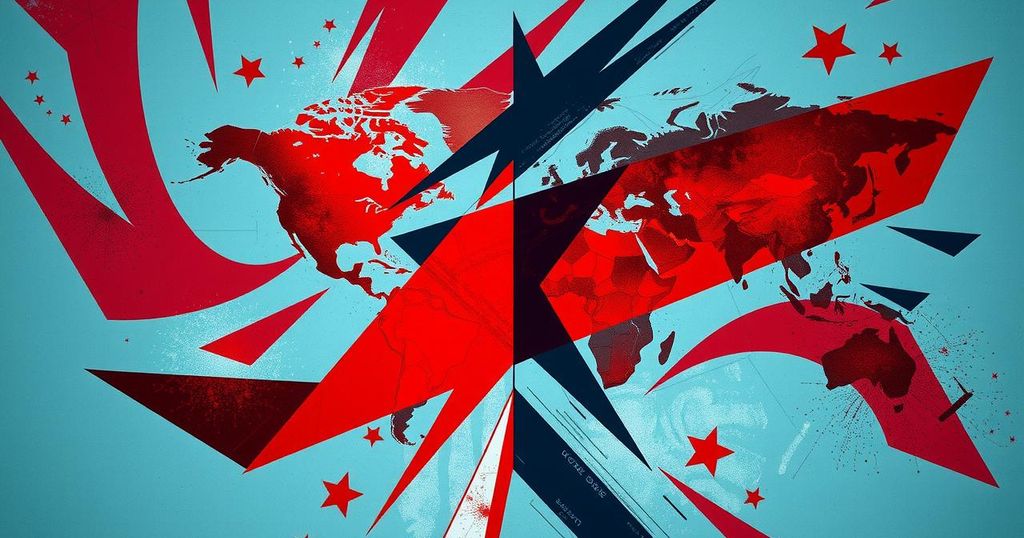Iran Warns of Retaliatory Actions If IAEA Adopts Anti-Iran Resolution

Iran has warned of retaliatory measures if the IAEA adopts an anti-Iran resolution in its upcoming Board of Governors meeting. As tensions rise, Iranian officials stress that their cooperation with the agency could change dramatically, particularly if their enrichment activities are further criticized. November may see the reintroduction of UN sanctions as European nations pursue a resolution, heightening uncertainties in nuclear negotiations between Iran and the US.
In a notable escalation, Iran has issued stark warnings regarding potential retaliatory actions if the International Atomic Energy Agency (IAEA) decides to adopt an anti-Iran resolution during its Board of Governors meeting scheduled for Monday. During an appearance on state television, Behrouz Kamalvandi, spokesperson for the Atomic Energy Organization of Iran (AEOI), expressed that Iran would reassess its level of cooperation with the IAEA if such a resolution passes, asserting, “Certainly, the IAEA should not expect the Islamic Republic of Iran to continue its broad and friendly cooperation.”
Kamalvandi articulated that Iran had previously signaled its discontent over prior resolutions being ignored and underscored the effects of this negligence, mentioning a substantial increase in their 60 percent uranium enrichment—reportedly amplified by seven times due to the initiation of 20 chains and installation of 13th-generation machines. He hinted at a list of specific measures Iran is ready to implement in response to an unfavorable IAEA resolution, although details were sparse.
Part of these prospective measures, as stated by Kamalvandi, will relate to technical aspects, while others would impact how Iran interacts with the IAEA. He commented on the country’s enrichment levels, clarifying, “We have repeatedly emphasized that we do not have enrichment above 60 percent” and described the recent spikes in enrichment as due to technical circumstances, which were eventually resolved. Interestingly, he added that the complaints surrounding this issue had been largely overlooked by the media and in passing resolutions.
Kamalvandi also pointed a finger at European nations for purportedly attempting to advance an anti-Iran resolution, which he claims is aimed at activating a snapback mechanism that would reintroduce UN sanctions against Iran, aligned with the previous 2015 nuclear deal. The proposed resolution would create a narrow window for reactivating those sanctions before a critical October deadline. The ramifications of an IAEA resolution could complicate ongoing nuclear negotiations between Iran and the United States, especially since Iran has already stated it would respond resolutely if sanctions were to be reapplied.
Further escalating tensions, Iranian Foreign Minister Abbas Araghchi slammed the drafting of the resolution by the UK, France, and Germany as a “strategic mistake” on his social media channel. He decried the allegations of non-compliance against Iran, highlighting that years of cooperation with the agency had culminated in a resolution dispelling the notion of a military dimension to Iran’s nuclear aspirations.
Reports from the IAEA have indicated a concerning uptick in Iran’s stockpile of enriched uranium, which Tehran has labeled as politically motivated and biased. The IAEA cited that Iran’s stockpile has risen significantly, with an estimate of 408.6 kilograms of uranium enriched to 60 percent as of May 17, marking an increase since its last report in February. Iran has denounced the IAEA’s assessment as skewed, claiming that it’s influenced by European pressures.
As the IAEA convenes to discuss potential resolutions against Iran, tensions are escalating. Iranian officials warn of serious consequences if the resolutions pass, citing a readiness to adjust their cooperation with the agency and accelerate enrichment activities. The situation complicates nuclear negotiations between Iran and the United States and raises the stakes as European nations move to initiate a snapback mechanism for sanctions. International scrutiny intensifies, with Iran rejecting claims of non-compliance, calling for balanced assessments of its nuclear activities.
Original Source: www.presstv.ir








